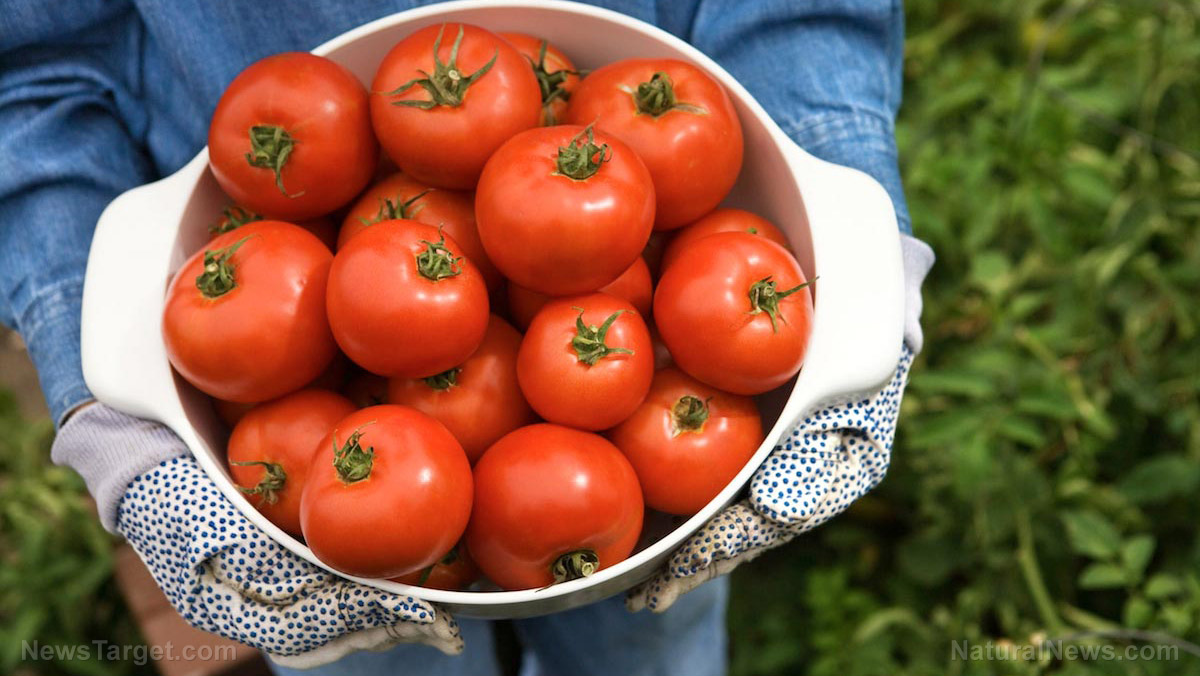
Researchers find that drinking unsalted tomato juice helps lower cardiovascular disease risk
Zoey Sky

Tomatoes are full of antioxidants with many health benefits, such as lycopene which has anti-inflammatory properties. Tomatoes are also full of vitamin C that helps boost your immunity.
According to a study published in the journal Food Science & Nutrition, drinking unsalted tomato juice regularly may also lower your risk of developing heart disease.
Tomato juice and heart health
Study findings suggest that consuming a 200 ml bottle of tomato juice per day lowered the blood pressure and cholesterol levels in those who are at risk for the condition.
For the study, researchers from the Tokyo Medical and Dental University (TMDU) followed 481 participants for one year. The participants were given as much tomato juice as they wanted.
The volunteers were also told to keep diaries where they recorded how much tomato juice they consumed daily, as well as any noticeable health changes.
Data showed that the majority of the volunteers drank at least one 200 ml bottle of unsalted tomato juice per day.
On average, blood pressure dropped by three percent in 94 participants with untreated pre-hypertension or hypertension (high blood pressure). (Related: Declared a vegetable by the Supreme Court, tomatoes are a world-wide staple with many widely known health benefits.)
This means the participants’ systolic blood pressure (the top figure) went down by at least 4mmHg. Additionally, their diastolic blood pressure (the bottom figure) decreased by 3mmHg.
According to the National Health Service (NHS), a reading of 140/90mmHg or higher is considered high blood pressure.
How does tomato juice boost heart health?
The scientists explained that the chemical lycopene, which gives tomatoes their bright red color, prevented plaque from building up in volunteers’ arteries. This then helped reduce their blood pressure.
Lycopene inhibits low-density lipoprotein (LDL) or “bad” cholesterol that can harden the arteries. Compounds in tomatoes also decreased the absorption of dietary cholesterol in the small intestine and cholesterol synthesis in the liver.
Aside from lycopene that protects cells from free radical damage and minimizes inflammation, tomatoes also contain vitamin C and beta-carotene, two anti-inflammatory antioxidants.
Among the participants with hypertension, 125 experienced a 3.3 percent average reduction in the fatty substance that blocks blood vessels, which results in heart attacks and strokes.
The results showed that the beneficial effects of tomato juice were similar among men, women and different age groups.
While the study results are promising, health experts advised that they must be taken with a grain of salt. Victoria Taylor, a senior dietitian at the British Heart Foundation (BHF), commented that further study is required to fully determine the health benefits of tomato juice.
Taylor added that the Japanese diet is different from Western diets and that it’s not wise to generalize. The study also didn’t factor in the other foods the volunteers consumed or lifestyle factors that could affect their blood pressure and cholesterol levels.
However, Taylor acknowledged that consuming more fruits and vegetables like tomatoes significantly boosts your heart and circulatory health.
This doesn’t mean you can drink tomato juice whenever you want. Taylor said that you shouldn’t consume more than one 150ml serving of fruit or vegetable juice daily since the beverage, while healthy, is still high in sugar.
Tomato juice recipe
It’s best to make tomato juice at home instead of buying sweetened products that will only increase your sugar intake.
To make heart health-boosting tomato juice, cook sliced fresh tomatoes for 30 minutes over medium heat. Once the tomatoes are cooled, toss them into a high-powered blender or food processor. Pulse until you achieve the desired consistency.
Either blend the tomato mixture until you have a liquid with a drinkable texture, or leave it thicker to use as a sauce for pasta or other dishes.
Alternatively, you can combine tomatoes with other herbs and vegetables like celery, oregano or red peppers to make a more flavorful and nutritious drink.
Sources include:
https://www.naturalnews.com/2020-02-25-tomato-juice-helps-lower-cardiovascular-disease-risk.html
